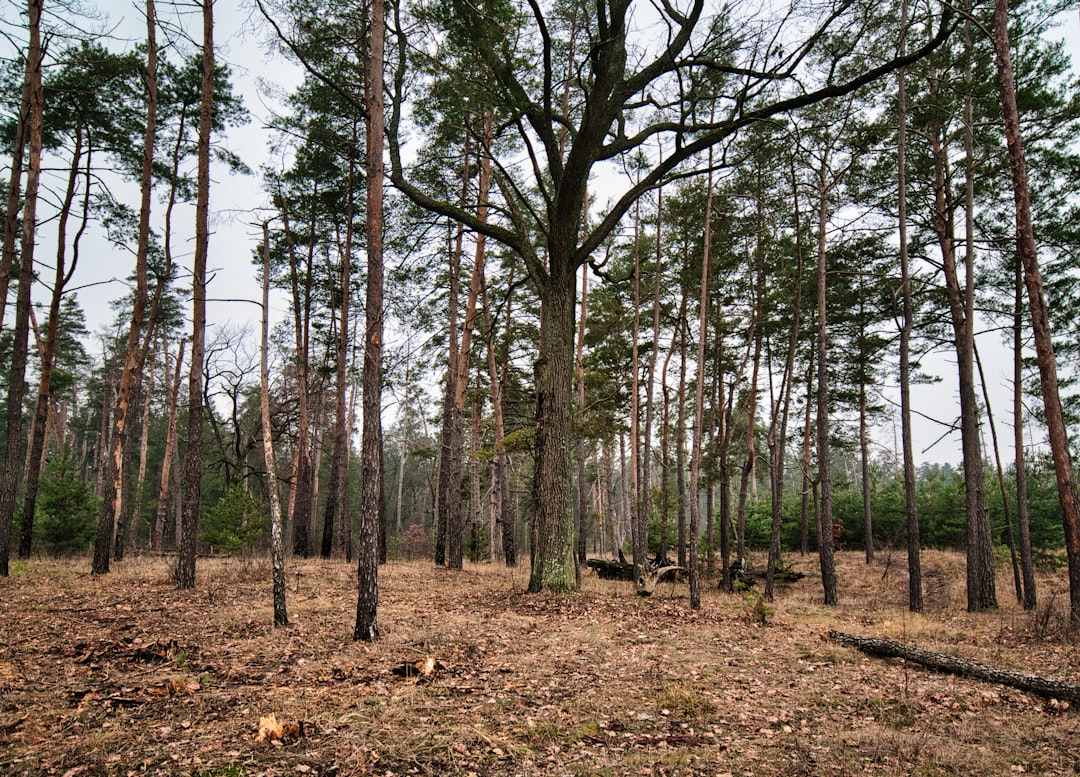

Effective Marketing Strategies
Real estate agents and brokers have the expertise and resources to effectively market your land to potential buyers. They can use a variety of marketing tactics such as online listings, social media promotion, and networking within their professional circles to attract interested parties. This can help increase visibility for your property and ultimately lead to a faster sale.
Negotiation Skills
One of the key benefits of using a real estate agent or broker to sell land is their negotiation skills. These professionals are trained in the art of negotiation and can help ensure that you get the best possible price for your property. They can also handle any tricky negotiations with potential buyers, saving you time and stress in the process.
Legal Expertise
Selling land involves a number of legal considerations, from zoning regulations to title issues. Real estate agents and brokers have a deep understanding of these legal complexities and can guide you through the process smoothly. They can help ensure that all necessary paperwork is completed correctly and that you are in compliance with all relevant laws and regulations.
Access to a Network of Professionals
When you work with a real estate agent or broker, you gain access to their network of professionals in related fields such as surveyors, appraisers, and attorneys. This can be incredibly valuable during the selling process, as it ensures that you have access to trusted experts who can provide additional support as needed. Having these resources at your disposal can streamline the selling process and help ensure a successful transaction.
One way to increase the value of land before putting it on the market is by obtaining necessary permits and approvals. This can include zoning changes, environmental impact assessments, or building permits. By having these in place, potential buyers will see the land as more valuable and ready for development.
Another way to increase the value of land is by improving its infrastructure. This could involve installing utilities such as water, sewer, electricity, or internet access. By making the land more accessible and functional, buyers will be willing to pay a higher price for it.
Enhancing the landscaping and curb appeal of the land can also boost its value. This could include planting trees and flowers, adding pathways or fences, or even creating recreational areas like parks or playgrounds. A well-maintained and visually appealing property will attract more interest from potential buyers.
Investing in sustainable features like solar panels, rainwater harvesting systems, or green buildings can significantly increase the value of land. Buyers are increasingly looking for eco-friendly options that reduce their carbon footprint and energy costs. By incorporating sustainable practices into the property, you can make it more attractive to environmentally conscious buyers.
Subdividing the land into smaller parcels can also raise its overall value. Some buyers may be interested in purchasing smaller plots for residential or commercial development purposes. By subdividing the land beforehand, you can cater to a wider range of buyers and potentially command a higher price per parcel.
Improving accessibility to the land by building roads or pathways can make it more marketable and valuable. Potential buyers will be more inclined to invest in a property that is easily reachable and well-connected to major transportation routes. Enhancing access can also open up new opportunities for development and expansion on the land.

Selling land can be a complex process that involves several steps in order to ensure a successful transaction.. Whether you are selling a small plot of land or a large parcel, there are certain key steps that need to be followed in order to sell your land smoothly. The first step in selling land is to determine the market value of your property.
Posted by on 2024-09-30

When it comes to selling your land, determining its value is a crucial step in the process.. The value of your land can be influenced by a variety of factors, including location, size, zoning restrictions, and market conditions. One important factor to consider when determining the value of your land is its location.
Posted by on 2024-09-20

Unlocking the potential of your land and maximizing your profits is a goal that many landowners aspire to achieve.. Whether you own a small plot of land or a large estate, there are several key strategies that can help you make the most of your property. First and foremost, it's important to assess the current state of your land and identify any areas that have untapped potential.
Posted by on 2024-09-20

Are you looking to sell your land quickly and for top dollar? If so, you've come to the right place. In this essay, we will explore some key secrets to successfully selling your land in a timely manner and maximizing your profits. One of the first steps in selling your land is to properly prepare it for sale. This includes clearing any debris or unwanted structures, as well as making any necessary repairs or improvements.
Posted by on 2024-09-20
First, the process for selling land typically begins with determining the value of the property. This can be done by hiring a professional appraiser who will assess the market value of the land based on factors such as location, size, and potential uses.
Next, it is important to prepare the necessary paperwork for the sale of the land. This includes gathering documents such as deeds, surveys, tax records, and any other relevant information that may be required by potential buyers or legal entities involved in the transaction.
Once the paperwork is in order, it is time to market the land for sale. This can be done through listing on real estate websites, working with a real estate agent, or utilizing other marketing strategies to reach potential buyers. It is important to showcase the unique features and benefits of the land to attract interested parties.
After attracting potential buyers, negotiations will take place regarding the terms of the sale. This may include discussing price, financing options, contingencies, and closing dates. It is important to work closely with legal professionals or real estate agents during this stage to ensure that all aspects of the transaction are handled properly.
Finally, once an agreement has been reached between buyer and seller, it is time to close the deal. This involves signing all necessary documents transferring ownership of the land from seller to buyer. Additionally, any outstanding payments or fees should be settled at this time before officially completing the sale of the land.


When determining the value of your land for selling, there are several key factors to consider that can impact the final price you may receive.
Location: The location of your land is one of the most important factors in determining its value. Land located in desirable areas with access to amenities, good schools, and transportation options will generally fetch a higher price than land in less desirable locations.
Size and shape: The size and shape of your land will also play a significant role in its value. Larger parcels of land are typically more valuable than smaller ones, while irregularly shaped plots may be harder to sell at a premium price.
Zoning regulations: Zoning regulations set by local governments can greatly affect the value of your land. If your property is zoned for residential or commercial use, it may be worth more than if it is zoned for agricultural or industrial purposes.
Development potential: The development potential of your land can also impact its value. If your property has the potential to be subdivided or developed into housing or commercial space, it may be worth more than if it is limited in its development options.
Market conditions: The current market conditions in your area will also influence the value of your land when selling. Factors such as supply and demand, interest rates, and economic trends can all affect how much buyers are willing to pay for land.
Comparable sales: Finally, looking at comparable sales in your area can give you a good idea of what similar properties are selling for. By researching recent sales of similar land parcels, you can get a better sense of what price range to expect when selling your own land.
Spring: During the spring months, the real estate market tends to pick up as buyers are more active. The weather is improving, making it easier for people to visit properties and envision themselves living or investing in the land. Additionally, spring is a time of renewal and growth, which can boost the appeal of land for potential buyers.
Summer: Summer is another popular time to sell land, as many families prefer to move during this season when children are out of school. The longer days and warmer weather make it ideal for showcasing outdoor spaces and highlighting the potential of the land. Vacationers may also be looking to invest in properties during this time.
Fall: While fall may not be as busy as spring or summer, it can still be a good time to sell land. The cooler weather makes it comfortable for buyers to explore properties without dealing with extreme heat. Additionally, some buyers may be looking to purchase land before winter sets in, especially if they plan on building or developing on the property.
Winter: Winter is generally considered a slower season for selling land due to colder temperatures and less daylight hours. However, there are still opportunities for those looking to sell during this time. Some buyers may be motivated by year-end tax considerations or eager to secure a property before prices potentially rise in the spring.
Market Conditions: Regardless of the season, it's important to consider current market conditions when determining the best time to sell land. Factors such as interest rates, housing inventory levels, and local economic trends can all impact how quickly your property sells and at what price. Stay informed about market trends and consult with a real estate professional for guidance.
Personal Circumstances: Ultimately, the best time to sell land will depend on your personal circumstances and goals. Consider factors such as your financial situation, timeline for selling, and any external factors that may influence your decision. It's important to weigh all these considerations carefully before listing your property on the market.


Real estate agents play a crucial role in selling land, facilitating the process and ensuring a successful transaction for both buyers and sellers.
Understanding Market Trends: Real estate agents have knowledge of current market trends, including pricing, demand, and competition. This information helps them advise sellers on setting the right price for their land to attract potential buyers.
Marketing Expertise: Real estate agents use their marketing expertise to promote the land listing through various channels such as online listings, social media, and networking within the industry. This exposure helps reach a wider audience of potential buyers.
Negotiation Skills: One of the key roles of a real estate agent is to negotiate on behalf of their clients. They work to secure the best possible deal for the seller while also meeting the needs of the buyer. Their negotiation skills are essential in closing a successful sale.
Legal Knowledge: Real estate transactions involve complex legal processes and paperwork. Real estate agents have a thorough understanding of these legal requirements and ensure that all documentation is completed accurately and on time.
Guidance and Support: Throughout the selling process, real estate agents provide guidance and support to their clients. They address any concerns or questions that arise, offer advice on next steps, and help navigate any challenges that may come up during the sale.
Networking: Real estate agents have an extensive network of contacts within the industry, including other professionals such as surveyors, attorneys, lenders, and developers. This network can be valuable in connecting sellers with potential buyers or other resources needed for a successful sale.
Closing the Deal: Ultimately, real estate agents are responsible for closing the deal between buyers and sellers. They coordinate with all parties involved to ensure a smooth transaction from start to finish. Their goal is to facilitate a successful sale that meets the needs and expectations of both parties involved.
When it comes to selling land, there are significant differences between selling raw land and developed land that sellers should be aware of.
Raw Land: Raw land refers to undeveloped or vacant land that has not been improved in any way. Here are some key points to consider when selling raw land:
Market Value: Raw land typically has a lower market value compared to developed land because it lacks infrastructure and amenities. Potential: Selling raw land requires highlighting the potential for development, such as zoning regulations, utility availability, and proximity to amenities. Investment: Buyers of raw land often purchase with the intention of developing the property themselves or holding onto it as an investment for future development opportunities.
Developed Land: Developed land refers to parcels that have been improved with infrastructure such as roads, utilities, and buildings. Here are some key points to consider when selling developed land:
Market Value: Developed land generally has a higher market value compared to raw land due to the added infrastructure and amenities. Income Potential: Developed land may offer income-generating opportunities through rental income from buildings or leasing of space. Maintenance Costs: Sellers of developed land should be prepared for potential maintenance costs associated with maintaining buildings, landscaping, and utilities.

Certain properties may be subject to environmental regulations that could impact development due to wetlands, endangered species habitats, or contamination issues.
Costs include purchase price, survey fees, legal fees, title insurance, taxes, and possibly environmental assessments or permit fees.